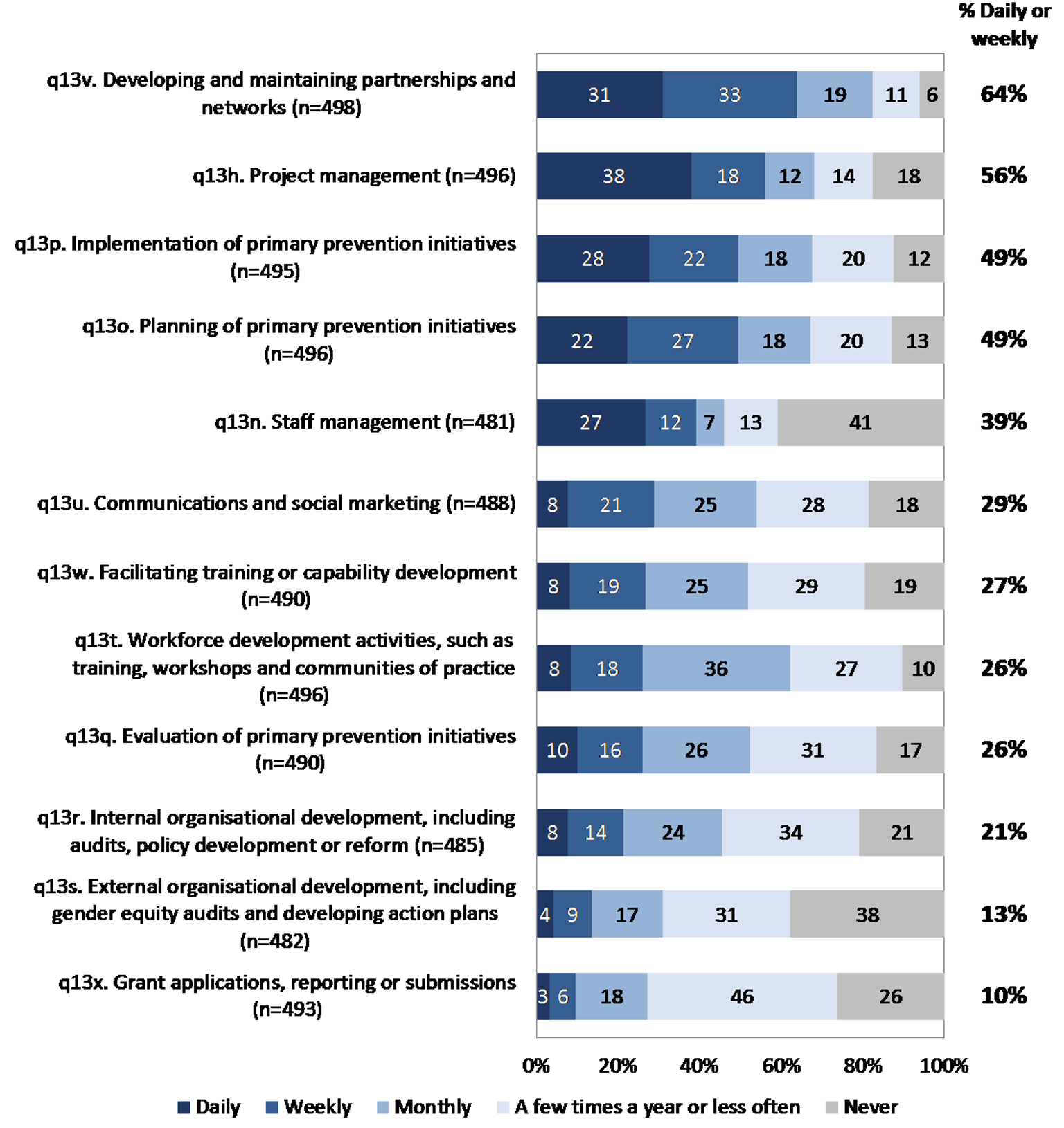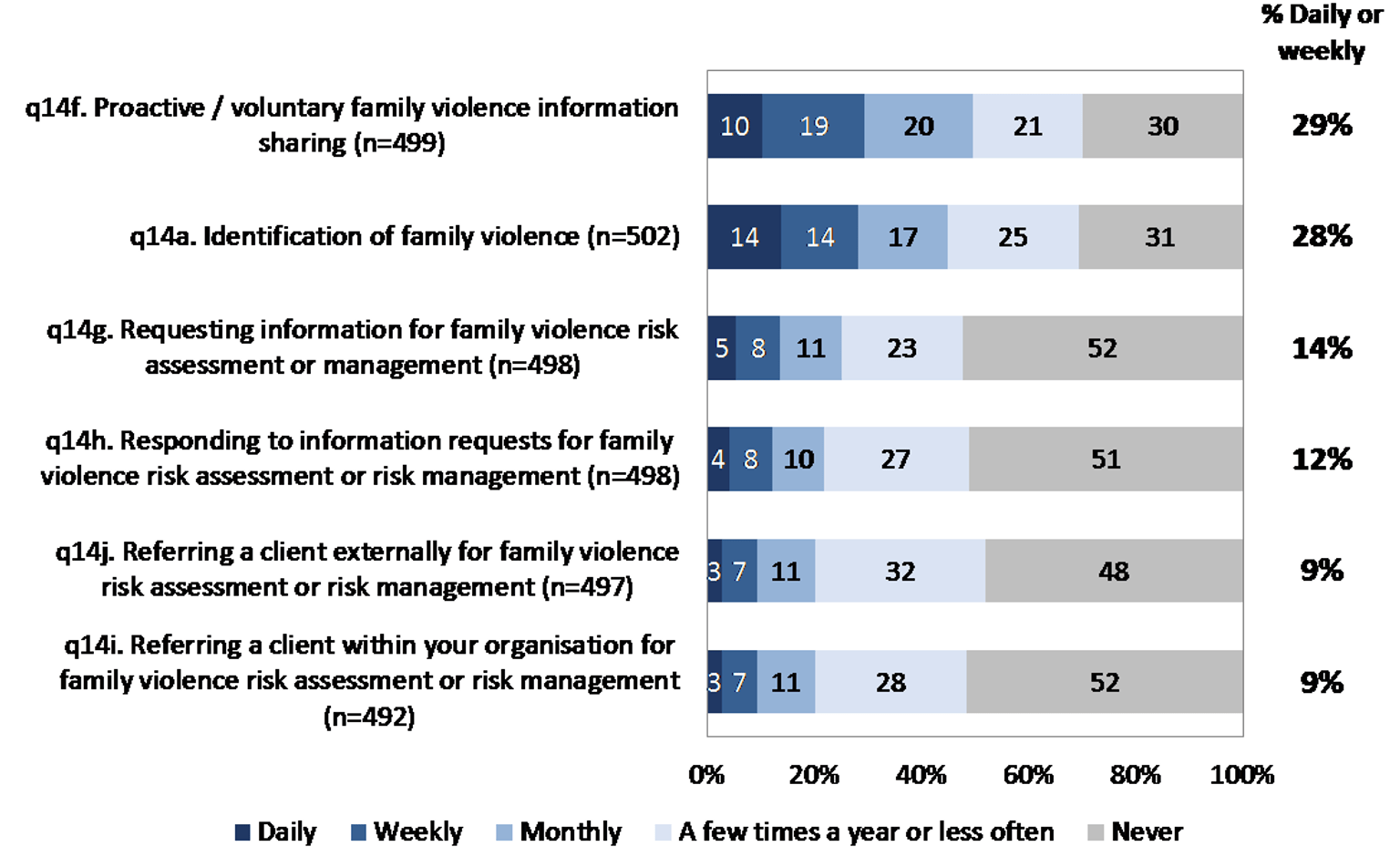They utilise a variety of approaches in their work, including awareness raising, partnership development, community development, advocacy, and structural, environmental, organisational and systems development.
The primary prevention practitioner workforce comprises a range of roles. This chapter summarises the role requirements of this workforce both generally and as they relate to family violence.
Overall, the Census results identified the diversity of activities undertaken by this workforce, and the varying frequencies at which these activities are conducted. As perhaps expected, respondents were more likely to report that they frequently worked on activities that were core to their primary prevention role (such as partnership development and primary prevention initiatives), and undertook family violence response-specific activities less frequently (particularly those related to information requests and client referrals).
Updated

